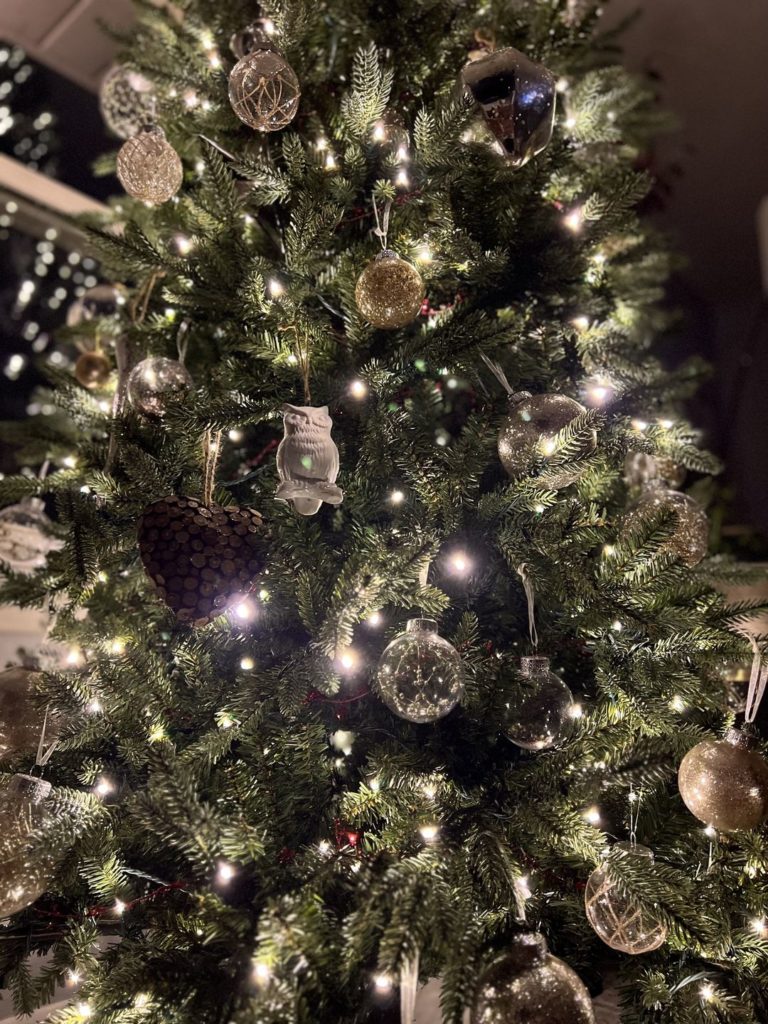The grief that is December seems to have snuck up on me once again. I’m not sure why am I surprised, though; it’s like clockwork. Every year around Dec. 11 or 12, it creeps up behind me and pinches me hard on the ass. “Me again!” it announces with a smile and some jazz hands… right before delivering a kick square to the crotch.
The timing is funny – not funny “haha” as much as “you gotta be kidding me” facepalm ironic– because it hits just after the anniversary of my dad’s passing on Dec. 9. The date of death itself seems to slip by under the radar – I don’t even register it until after the fact – but when the realization comes, it takes over fully. There isn’t much space left to feel or think about much else.
The grief found me earlier this week in the grocery store, right there in the frozen food aisle between the Tater Tots and Pizza Rolls. Bing Crosby crooned over the sound system about having yourself a merry little Christmas, one of my dad’s favorite tunes. Before I even got past the Eggos, I was in tears. I felt something like the little girl in this video looking for her person in the crowd, except that my person is, well… gone.
For all the work I do to encourage us to truly feeling our feelings, I’ll admit there’s a real judgy SOB inside who tries to shut those feelings down hard within me when they arise. “You’re crying about feeling like a 48-year-old orphan?!” she scolds. “It’s been 15 years. Get. Over. It.”
Thank God for therapy.
In unpacking that pain today, I brought up a poem that I memorized as a girl, “After A While” by Veronica A. Shoffstall. With lines I still quote often – such as “even sunshine burns if you get too much” and “you plant your own garden and decorate your own soul instead of waiting for someone to bring you flowers” – this is one that has shaped my thinking about what it means to be smart and self-sufficient.
Apparently it shaped my views of grief, too.
When I shared with my therapist the line about accepting defeats “with your head up and your eyes ahead, with the grace of a woman not the grief of a child,” she got thoughtful.
“On first blush, I hear that to imply that grace is a quality that belongs to a woman while grief is one that belongs to a child,” she said. “But what if we look at it another way?
“The way that a woman grieves is different than the way a child grieves. And there is a grace that belongs to childhood that is different than the grace that belongs to an adult.
“What might the grief of a woman look like?” she asked.
Mercy.
For most of my life, I had internalized that *one* line in that *one* poem to mean that grief and grace were somehow exclusive of one another, in the same way that childhood and adulthood seem to be. And, applied to the loss of my beloved and imperfect father, I had twisted it somehow to mean that grace equaled a stoic sort of pseudo-acceptance, an enduring of reality rather than a true healing within in it.
That reframe was a permission, an opening, an instant softening in my body. And for the rest of the day I have been contemplating her question.
What *does* the grief of a woman look like?
I guess the honest answer is that I don’t know yet, but I am entirely committed to finding out.
THIS IS WHY WE GO TO THERAPY, FOLKS.
P.S. If you have thoughts on grieving, I’d love to hear them. Again, I don’t have the answers on this one, but I know good things can come from the conversation. I love you.






